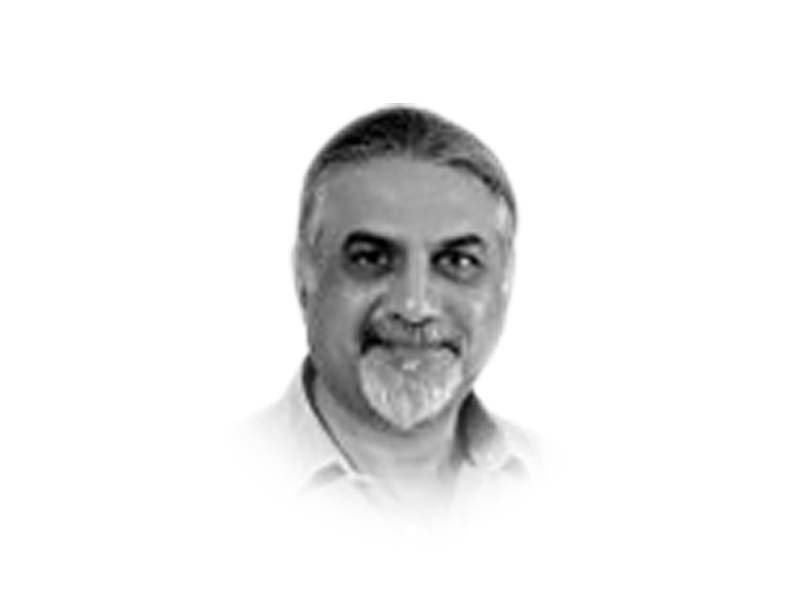
Many, if not most of us, spend some of our time reading historians, philosophers and scholars from the past. Hardly ever satisfying our intellectual curiosity, these great men and women of wisdom keep us engaged and accommodated in a very honest, rewarding and unselfish comfortable space called ‘intellectual history’. In intellectual history there is a high degree of consensus amongst most scholars about what actually constitutes goodness. Therefore, finding in history the answer to the question ‘what is good?’ is not difficult.
I am deeply interested in the relationship between historians, the intellectual scholars and our politicians. The former enlighten us with their persuasive arguments and dialogues whereas the latter undertake unpersuasive leaps in directions which the nation doesn’t want and even doesn’t need. What separates the practice of scholarship from the practice of politics is easy to tell — “the best form of government is that in which philosophers rule” said Socrates and Plato. In fact the ideal of a philosopher king was born in Plato’s dialogue in his book, Republic, written in 376 BC. The book spoke about the vision of creation of a just city, but almost 2500 years later the Third World still looks up to the creation of a just city; more than the ‘philosophers rule’, ‘corruption and nepotism’ rules in these countries.
Politicians have mocked and dismissed scholars and philosophers and their findings from the time that Thales of Miletus, a Greek mathematician and astronomer, the pre-Socratic philosopher fell down in a well while looking up at the stars. Politicians since then have mocked scholars saying that “it is better to keep one’s mind on earth”. I can’t say whether politicians share a common ground with scholars/ philosophers but what I can safely say is that in a country like Pakistan let alone evaluating, the politicians don’t even study their ideas or are hardly ever interested in finding and tracing the influences of their ideas. What are those ideas?
It’s never bad to take a ‘scholarly view of democracy’ — not so in countries like Pakistan. The primary reason of doing that is to see how the great historians/ philosophers and scholars have spoken about certain aspects of democracy, power and leadership so that a roadmap could be created seeing which less and less mistakes would be committed by the politicians. What was it that some of the great philosophers had to say about democracy?
Aristotle’s writings can be utilised to magnify the importance of solitary thinking by individuals against politics ‘collective control over thinking of individuals’ — but would politics allow it? In the period of European enlightenment it was not politics that had changed but what had changed was the attitude of the people towards politics. That attitude it seems is being changed by one man — Prime Minister Imran Khan — the others who are the carriers and transporters of politics of status quo, politics of no change never tried it.
Imran Khan’s rise and his belief in protecting the interests of the people is his great thesis which challenges the anti-thesis of ‘political corruption’ by opposition parties and with the military standing as the guard to safeguard and protect Pakistan’s national interests it strikingly completes Hegel’s dialectical thesis. Civil-military synergy is that political-military synthesis that is today the thorn in the side of the current opposition. Could there ever be an umpire of even some little repute when the game is being played by thugs — never on a level-playing field. So opposition should better stop talking about umpire and his finger and do something to finally put to an end its ‘corruption hunger’.
Politicians must read Alexis Tocqueville’s great work and his teachings on democracy in his book, Democracy in America, which highlights the problems that any democratic government faces. I hope the politicians read it and dig out Tocqueville’s work from history and create some self-awareness on hows, whats and whys of the problems faced by a democratic government. Then there is Theodor Adorno’s ‘Critical Theory’ that highlights how consumer culture is destroying us which Adorno suggested destroys us in three ways: how we spend our leisure time and what we do about it; before we are corrupt, we may be suffering psychologically; and we hurt others not because we want to but we are made to. Adorno’s analogies one can use to make democratic comparisons of the past and present democratic governments and also comment on the political behaviour of our tainted political leadership mostly camped in the opposition parties.
And why would any Pakistani forget about Johan Wolfgang Von Goethe someone who was read, followed and admired by our great national poet — Allama Iqbal. Goethe’s remarkable reference of doing anything and everything but never losing the sense of higher purpose may be utilised to draw a comparison of the politics of present and past. Despite the never ending problems being created by an opposition, PM Imran Khan’s politics continues to be driven by a sense of higher purpose.
It is not possible to talk about democracy and not talk about Aldous Huxley and excerpts from his phenomenal work, The brave new world, in which he highlights the importance of three forces that will continue to push and pull democracy. They are overpopulation, over-organisation and propaganda. One can draw a comparison of how democracy in Pakistan has suffered as it didn’t build fences to prevent the negative buildup of these forces in this country. And then there is David Hume who tells us “why we reason from and not to our convictions”. His belief that reason is a slave of passion gets exemplary treatment in Pakistani politics where the political leadership has over the years engaged passionately in the art of corruption and is yet to be held accountable.
Lastly, the conduct of power politics without mentioning the name of Machiavelli is like naming Pakistani opposition in politics without mentioning the word corruption. Machiavelli says that in democracy we consistently want to have two things that we cannot but must have — niceness and effectiveness. In this Machiavellian argument lies the answer to why PM Imran Khan continues to stand alone and keeps distance from the opposition — being nice is not his preferred option being effective is.
I said in the beginning that finding answer to the question to “what is good” is easy as there is a consensus in scholars on what constitutes goodness but when Goethe said “to tolerate is to insult”, it challenged my understanding of word toleration. Then I leant that the first measure of toleration is that “the one you tolerate is not your equal”. In moral politics none of the leadership of major political parties can match the standing of PM Imran Khan — they are not his equal. To tolerate also means to put up with what you don’t like — all of us put up with the opposition’s corruption and harm that they brought to this country in the past. We all tolerated them. However, the nicest thing about toleration is that “because it is bestowed it can easily be withdrawn”.
People are sick with what the PML-N and the PPP, as ruling democratic parties of the yesteryears, have done to this country. Only ask the people of Karachi. There tolerance has reached the tipping point. In fact, it has already converted into intolerance. Would any sane political mind think of holding APC and running an anti-government campaign with people in this mood? The only thing people are eagerly waiting for is the final judgement on corruption cases and seeing the looters and plunderers of the wealth of Pakistan behind the bars.
Published in The Express Tribune, September 6th, 2020.
Like Opinion & Editorial on Facebook, follow @ETOpEd on Twitter to receive all updates on all our daily pieces.














COMMENTS
Comments are moderated and generally will be posted if they are on-topic and not abusive.
For more information, please see our Comments FAQ